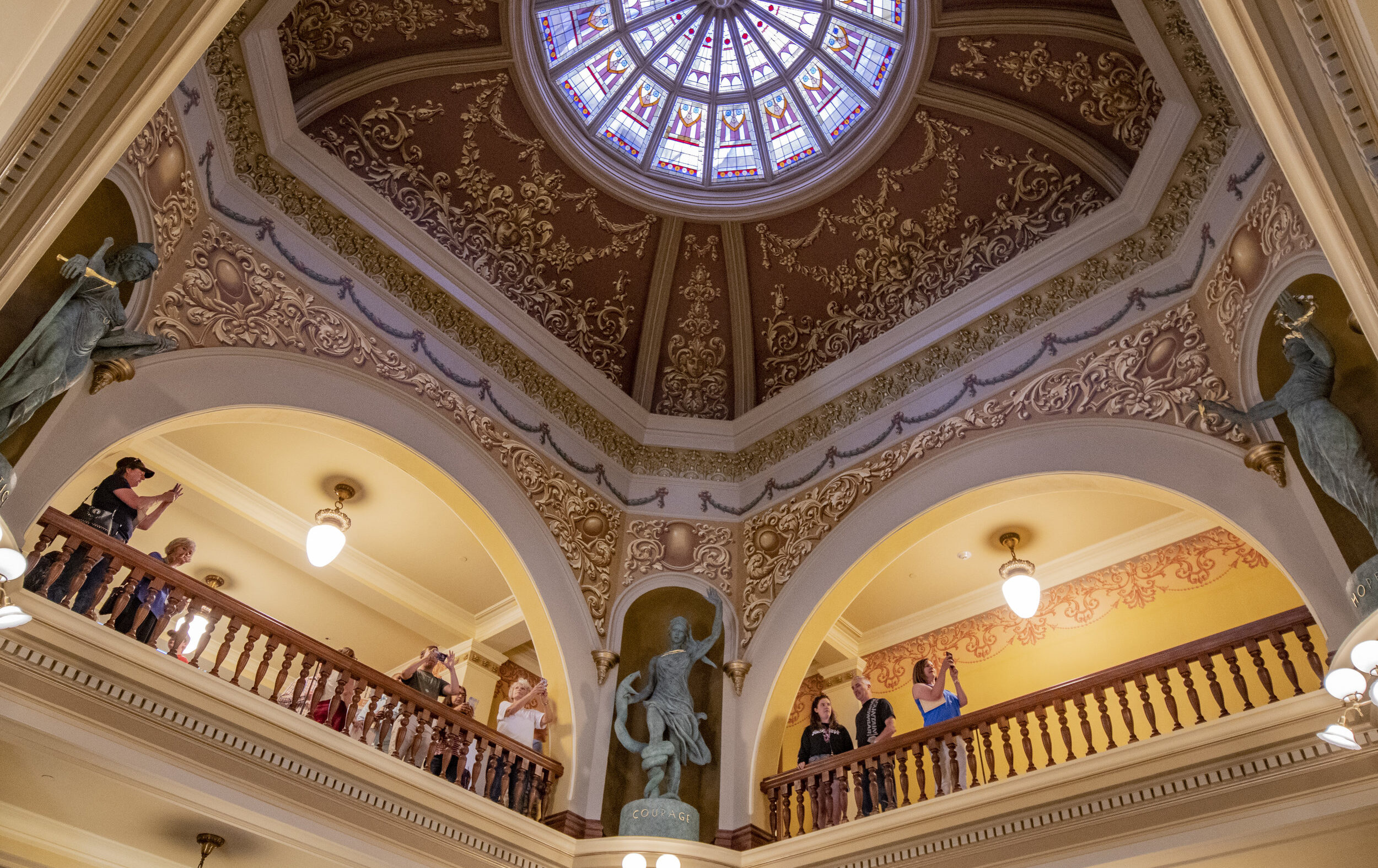With Wyoming facing a projected $1.5 billion revenue shortfall over the next two years, calls to get rid of the state’s death penalty have picked up, though the election will likely determine how much support lawmakers have for repeal during their next session.
Discussions of Wyoming’s death penalty resurfaced last month when Gov. Mark Gordon told a legislative committee that he was “looking very seriously” at issuing an executive moratorium on the death penalty, noting the roughly $1 million annual cost of keeping it on the books.
During a luncheon meeting Thursday with the Greater Cheyenne Chamber of Commerce, Gordon reiterated the “significant savings” that could come to the state from repeal.
Gordon could still issue a death-penalty moratorium, as governors in three other states have done, before state lawmakers reconvene for their regular session in January. But during the luncheon, he was inclined toward a collaborative approach.
“Ideally, the lawmakers would take this issue up,” Gordon said. “It’s clearly something I’ve talked about with legislators, and I’ve heard back strongly on both sides, so (I’m) still considering it, but I do think it’s really something the Legislature needs to look at.”
At the start of the Legislature’s budget session in February, a repeal bill fell three votes short of what it needed to be introduced in the House of Representatives.
That bill’s sponsor, Rep. Jared Olsen, R-Cheyenne, was optimistic in reviving the effort during a forum Thursday with Conservatives Concerned About the Death Penalty, a group made up of Republican lawmakers in about a dozen states.
Olsen, who is seeking reelection in House District 11, noted last year’s bill had 40 co-sponsors between the two chambers.
“We’re going to be back with even more co-sponsors, and this time even more votes,” said Olsen.
Olsen, echoing the governor, mentioned the annual payment that he said goes “fruitlessly” to the state’s capital punishment defense fund.
“I became even more agitated with a waste of taxpayer dollars and had the desire to turn that money into real good in the justice system,” said Olsen.
Though a repeal bill passed the House in 2019, the Senate rejected it by an 18-12 margin. Sen. Tara Nethercott, R-Cheyenne, who was one of those to vote against it, said the death penalty can be a useful tool in the criminal justice system.
With nobody currently on death row in Wyoming and the state’s most recent execution occurring in 1992, Nethercott also questioned the issue’s importance amid the largest revenue decline in state history.
“Of all the urgent needs to solve, the death penalty, to me, isn’t one,” said Nethercott, who co-chairs the Joint Judiciary Committee.
While lukewarm on the issue, the senator didn’t commit to voting in any particular way if a repeal bill comes up next session, describing the issue as “kind of a moving target” due to the state’s finances.
Given lawmakers’ past reluctance, along with an upcoming election that could change the political leanings of either chamber, only time will tell if Wyoming will join the 22 other states to have fully repealed the death penalty.

